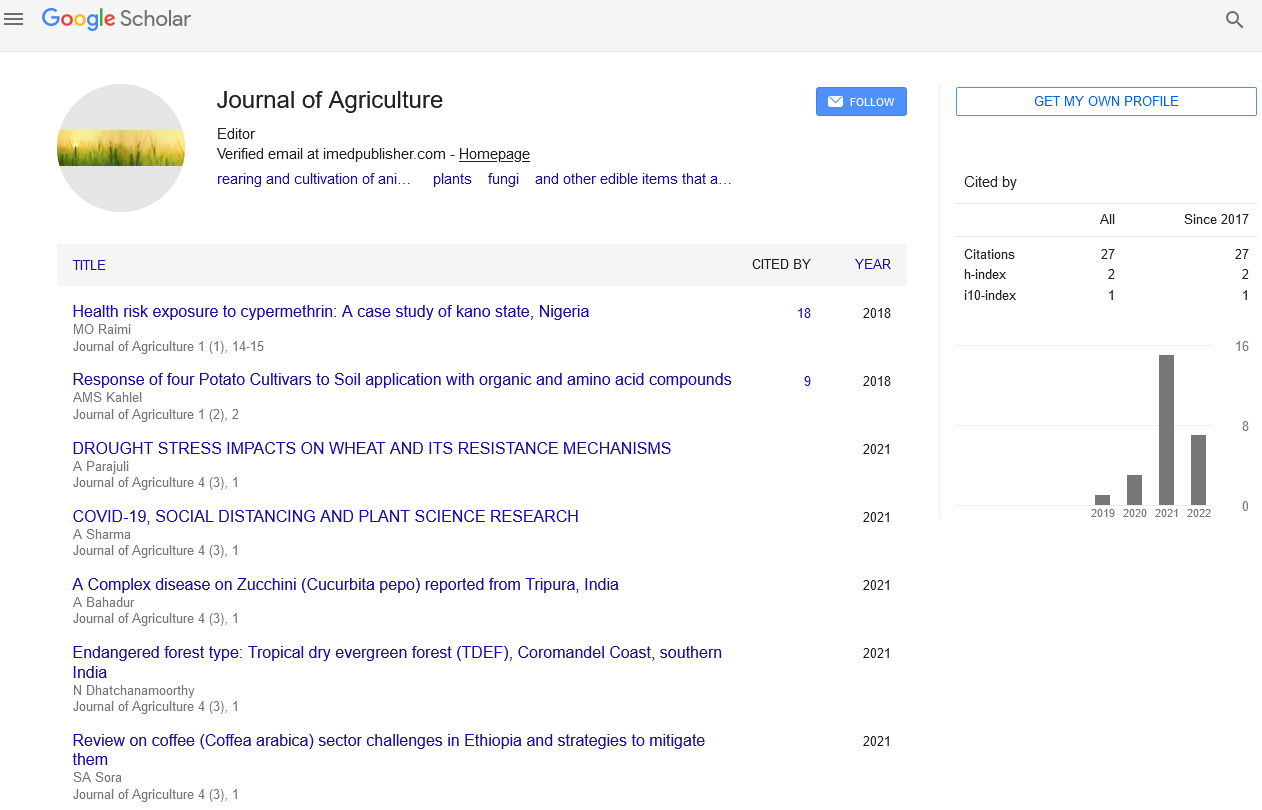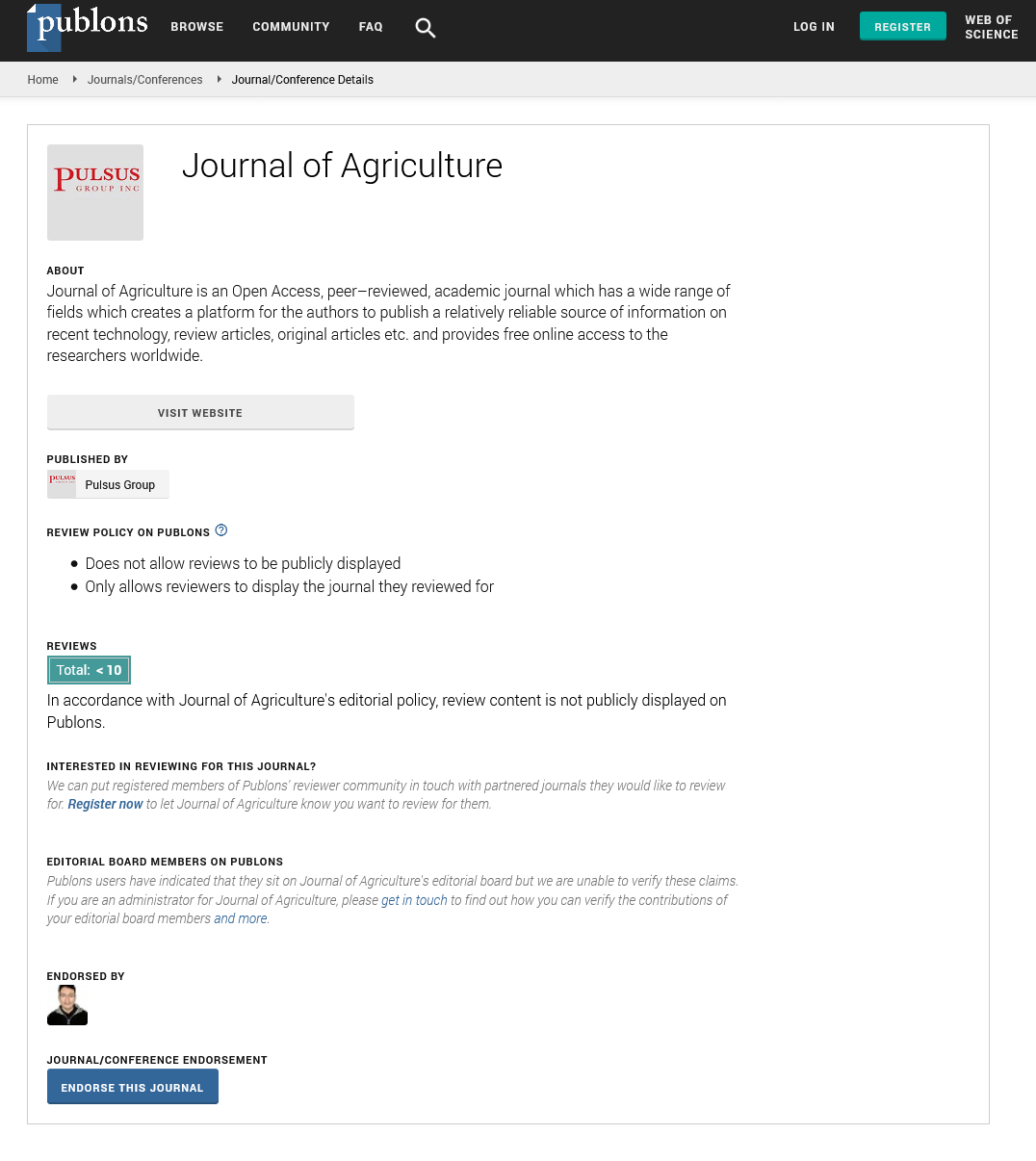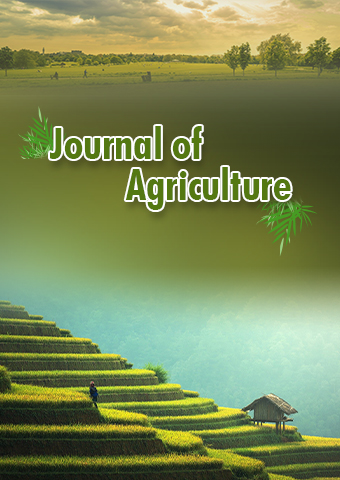Announcement - Journal of Agriculture (2021) Volume 4, Issue 1
New Challenges and advanced techniques in Plant Science
The global population would be facing challenges to make sure adequate crop production to meet growing food demands. Climate change is also one of the threats facing global food security. It may adversely affect the crops, forestry, livestock and aquaculture productivity. Plant biotechnology delivers to enhance the overall yield and crop productivity for sustainable development goals. According to the world agricultural plant biotechnology research, the market was approximately USD 32.89 billion in 2018 and it is expected to be around USD of 67.01 billion by 2025 and CAGR of around 10.7% between 2019 and 2025.
Abstract
The global population would be facing challenges to make sure adequate crop production to meet growing food demands. Climate change is also one of the threats facing global food security. It may adversely affect the crops, forestry, livestock and aquaculture productivity. Plant biotechnology delivers to enhance the overall yield and crop productivity for sustainable development goals. According to the world agricultural plant biotechnology research, the market was approximately USD 32.89 billion in 2018 and it is expected to be around USD of 67.01 billion by 2025 and CAGR of around 10.7% between 2019 and 2025.
The destruction of the environment, threatening, flooding and climate shift that is harmful to human habitation. The level of emission is increased and leads to the risk of global warming, ecological calamity and sea-level rise. The Dutch agricultural sector employs 4% of the labour force for producing large surpluses in the food processing industry. Thus, meeting the demands the overall food production should increase by applying plant biotechnology and genetic engineered plants for better quality and overall production to prevent food insecurity. There are four hundred companies are active in the Netherlands which was about 124 that are dedicated Life Science companies and about 30 diversified Life Sciences companies and about 300 followers of Life Science. In 2001 the group of dedicated Life Sciences companies produced the turnover of almost € 120 million of about 2.400 employees. Pharmaceuticals and fine chemicals companies also account for more than 70% of which was about 60% are in R&D.
The development of sustainable goals for crop production and biodiversity, combining studies on plant pathogen and pest resistance, plant adaptation, ecological genomics, natural selection, stress physiology and plant development. The Netherlands has become an agricultural sector that producing the future of farming. The global average potatoes yield of about per acre is nine tons. A sea of greenhouse in agricultural innovation, pioneering new pathways to fight hunger. Numerous automation of plant metabolomics is analysed by the NMR and MS for genetically modified crops. Some of the farming innovations that are practised such as Sustainable bananas from greenhouses, Using Food waste for feeding farm animals.


